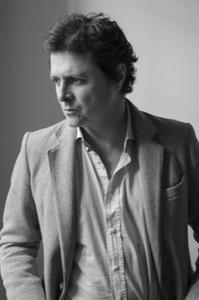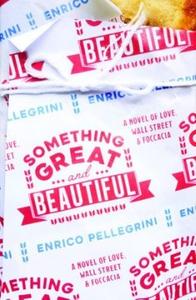
|
|
| photo: Margherita Pellegrini | |
On your nightstand now:
The Ruined House by Ruby Namdar.
I happened to steal this book from my publisher who'd inadvertently left it at my home. The protagonist, Andrew, reminds me of the protagonist of another great novel I loved having on my nightstand: Chip, protagonist of The Corrections by Jonathan Franzen.
Favorite book when you were a child:
The Adventures of Huckleberry Finn by Mark Twain.
This book, as a child, and when I reread it as an adult, conveyed to me an extraordinary sense of freedom, even more than many other books, including The Adventures of Tom Sawyer. And not just because it's a story about running away from slavery. Freedom, sometimes as a child or as an adult, in books as in life, can be associated with fear (of what is known, or even more of the unknown). Interestingly, in The Adventures of Huckleberry Finn, I was not scared, although legitimately many passages could make you feel that way.
My conclusion: it's the friendship between Huck and Jim that made me feel safe. I think it's difficult, in life and even in literature, to experience freedom without friendship or some type of love.
Your top five authors:
I consider most books I read, and their authors, like family (parents, cousins, children, etc.). As with my own children, I find it almost impossible to pick favorites, as for different reasons, or no reasons, I love them all. Here are some:
Dante Alighieri
Ernest Hemingway
Marcel Proust
Franz Kafka
James Joyce
Book you've faked reading:
Finnegans Wake by James Joyce
I think there are good and bad teachers in life, literature and art. I would consider Joyce's Finnegans Wake and Picasso's cubism bad teachers. Involuntarily they may lead a writer or an artist to think that there is no need for technique. I'd say most of Hemingway is good teaching.
 Book you're an evangelist for:
Book you're an evangelist for:The Pimpanzee, the unpublished novel by Tod Harrison Williams.
Book you've bought for the cover:
Mine.
My father, Max Pellegrini, is an Italian artist, and for the cover of my books in Italy, I always chose a painting, or a detail of a painting, of my father's. I love those covers.
Book you hid from your parents:
And from my friends...
Pride and Prejudice by Jane Austen.
I was so into it I had to pretend I was sick for a few days in order to finish it. I was in the Italian Alps: didn't go skiing or clubbing at night, just hid in my bed with my book.
Book that changed your life:
The Sun Also Rises by Ernest Hemingway.
I was 23. I had been re-writing my novel (La Negligenza) again and again for the past five years but I couldn't get it to work. I was about to give up writing all together. Then I was with a friend, in the middle of the Spanish desert in April, and the orange blossoms were inebriating, and I was reading The Sun Also Rises. I felt a shiver deep inside--"That's it!" I had found the way to write my book. I never, ever felt a baby kicking inside my stomach as I did in that moment.
Favorite line from a book:
"Now is the winter of our discontent, made glorious summer by this sun of York." --from Richard III by William Shakespeare.
Five books you'll never part with:
The Divine Comedy by Dante Alighieri
The Sun Also Rises by Ernest Hemingway
In Search of Lost Time by Marcel Proust
The Castle by Franz Kafka
Ulysses by James Joyce
Book you most want to read again for the first time:
Anna Karenina by Leo Tolstoy.
Book you would recommend others read:
The Quran

